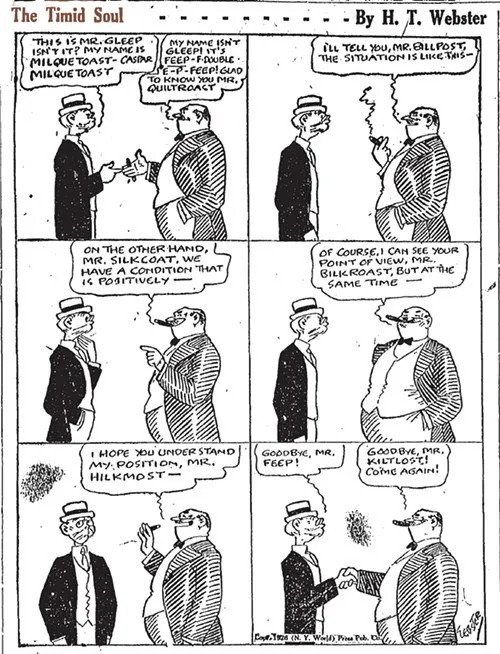Discombobulate is one of those words that sounds exactly like what it means. If you’re discombobulated then you’re confused, off balance or generally flustered (AKA me, 99 per cent of the time). In my family we call it ‘having a sweaty moment’.
Because it’s got loads of syllables, ‘discombobulate’ might sound like it has some serious historical and etymological chops. But the truth is, it’s a fairly new kid on the block, and even has a bit of a fun backstory (WHAT).
‘Discombobulate’ first appeared in American English in the mid-1800s. It’s what linguists call a ‘fanciful coinage’ – a word invented for humorous effect, typically with a focus on the sound or a playful association, rather than one that evolved naturally from older roots. It was most likely created as a mock-Latin version of ‘discompose’ or ‘discomfort’. Why? I hear you ask. Well, in the 1800s, Latin was seen as the language of the educated – so pretending to use it badly or exaggeratedly was a way of taking the piss out of seriousness or formality. ‘Discombobulate’ was part of that – it sounds grand, academic and archaic, but was actually completely made up by some smug smart arses.
The Oxford English Dictionary dates the first recorded use of ‘discombobulate’ as 1916. Related forms (including ‘discombobricate’) appeared in slang earlier than this though, especially at universities, as part of this trend for deliberately silly-sounding words.
Little did those smarty-smart arses know that ‘discombobulate’ would become a fully accepted word in both British and American English. So joke’s on you, smuggos.




